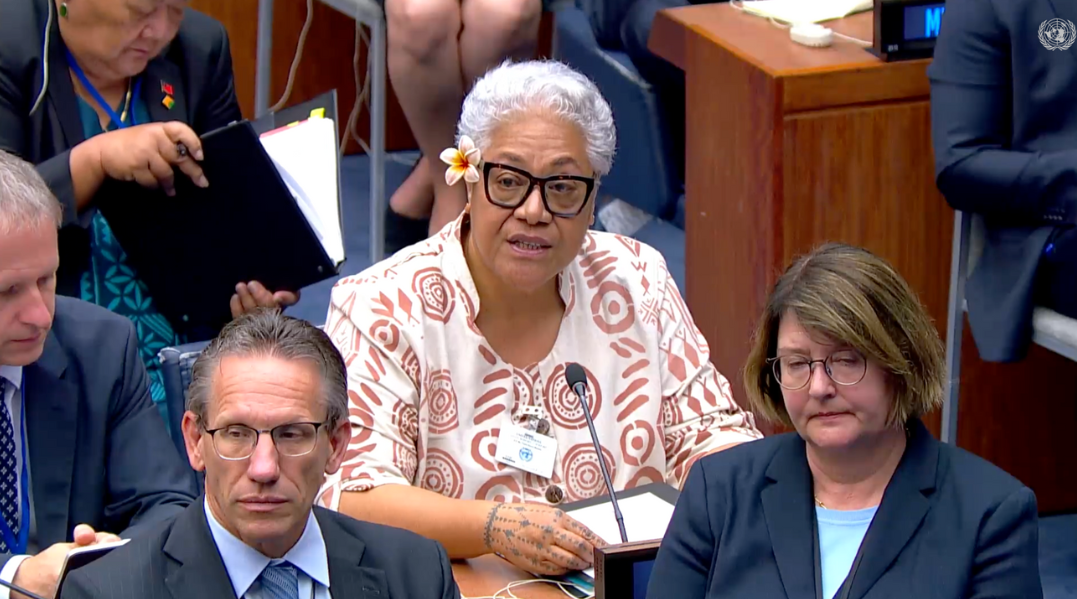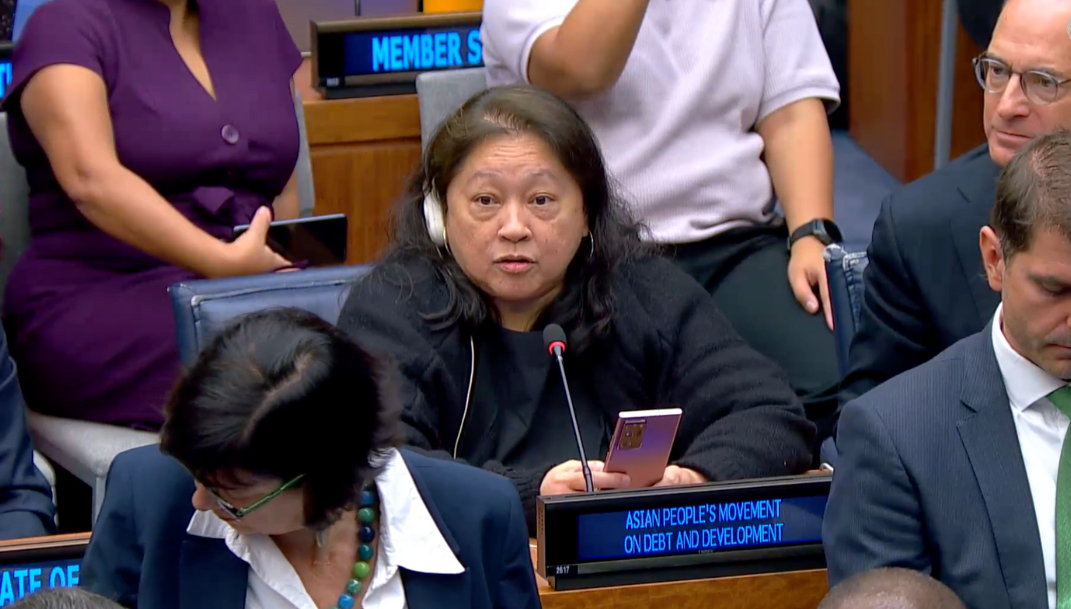
Our impact on the world impacts us.
In this Anthropocene epoch — our time in history named for the idea that we live in a globally interconnected network that has made humans a force of nature — we know that climate change is caused by humans, and is now threatening humans.
“We must be fighting poverty, climate change, and biodiversity loss. No country should have to choose between those,” emphasized Catherine Colonna, Minister for Europe and Foreign Affairs of France, at the outset of the 2023 SDG Summit of the United Nations General Assembly (UNGA) that convened on Monday. Colonna is right; no country should have to choose between those, and frankly, they can’t. To meaningfully fight poverty, you must fight climate change, and vice versa.
CLIMATE CHANGE & POVERTY: “INTERCONNECTED”
During the Leaders’ Dialogues, it was rare to hear a representative mention poverty and not mention climate change in the following sentence. After asserting that climate change and fragility are “interconnected challenges,” United States President Biden asked the Assembly in his Tuesday speech, “Will we find it within ourselves to preserve the planet, to protect human dignity, to provide opportunity for people everywhere?”
The link between the two crises is apparent: if we don’t preserve the planet, we cannot provide opportunity for people everywhere. “Climate policy is economic policy,” echoed Canadian Prime Minister Justin Trudeau at Wednesday’s Climate Action Summit.
Ghana serves as a prime example of climate change exacerbating extreme poverty. The World Bank estimates that a million more people in the country could fall into poverty by 2050 if urgent action against climate change is not taken.
If the kickoff to UNGA has told us anything, it is that climate change is here and it is threatening our most vulnerable. The critical intersection of poverty and climate change was only further underlined by the Assembly throughout the beginning of the week.
WOMEN AT THE INTERSECTION OF POVERTY & CLIMATE
Women are at the heart of the climate crisis, fighting at the frontlines while simultaneously bearing the brunt of the burdens that come with it. “Women often face higher risks and greater burdens from the impacts of climate change in situations of poverty and due to existing roles, responsibilities and cultural norms,” according to the UN Framework Convention on Climate Change. With more time spent doing daily tasks (like having to travel further distances to obtain safe drinking water, for example) that leaves a woman with less time to do paid work.

Prime Minister Afioga Fiamē Naomi Mata'afa of Samoa
In the recently released SDG Report by UN Women, experts say that 158 million women and girls could be pushed into poverty by 2050 as a direct result of climate change. When leaders spoke, then, of the “most vulnerable” being harmed by climate change at UNGA, they were implicitly referencing the world of women that have found themselves at the crux of this triad of crises.
AMBITIOUS CLIMATE LEADERS ARE AMBITIOUS LEADERS FOR WOMEN
At Wednesday’s Climate Ambition Summit, many High-level “movers and doers” spoke of ways to address this intersection, and Katrín Jakobsdóttir, Prime Minister of Iceland, called out this crux overtly. “SDG 5, on gender equality, is an enabler and multiplier for all other SDGs. And thus for a meaningful climate action, empowering women and girls is actually a key factor to resolve many of our challenges,” said Jakobsdóttir. “We all know that women and girls are disproportionately impacted by climate change.”
Prime Minister Afioga Fiamē Naomi Mataʻafa of Samoa spoke of the island communities in her country that “have already been forced to relocate due to rising seas…where residents are challenged to access safe drinking water due to saltwater intrusion…” where coastal erosion has irrevocably destroyed lands. For her, an investment strategy focused on “resilient infrastructure, reforestation, and geothermal energy projects” like that of Dominica’s will protect her most vulnerable from further climate change harms.
Mia Mottley, Prime Minister of Barbados, passionately advocated for debt cancellation for all low income countries – “If they are going to do what is necessary for climate ambition, they have to be put in the position to do so,” – and mandating that non-government actors like finance, insurance, transportation, and fossil fuel industries contribute to the Loss and Damage fund for Vulnerable Countries, which was established last year at COP27. “It is painful to continue to see that you [wealthy nations] are asking us to increase borrowing to build resilient infrastructure for something that we did not do,” argued Prime Minister Mottley. “It is almost a crime against humanity.”

Lidy Nacpil from the Asian People's Movement on Debt and Development
Lidy Nacpil from the Asian People’s Movement on Debt and Development advocated for the world’s wealthiest countries to do this, by paying their “fair share,” described as “meeting their full obligations to deliver climate finance… it is so absolutely vital, not only for adaptation, building resilience, and covering loss and damage, but it is fundamental for equity and justice and the fair sharing of efforts in the energy transition – without which this transition will not succeed.” Nacpil said that climate financing is “reparations” for the “historical and continuing harms and injustices” perpetrated by rich countries on poor ones, by the privileged on the vulnerable, and – implicitly – by men on women.
If the UN wants to solve any of these three interconnected crises – extreme poverty, climate change, and gender inequality – they can, because combating one means combating all. The Climate Ambition Summit underlined the will of many nations to justly invest in the Global South to improve their resilience infrastructure – uplifting the “places that have contributed so little to global emissions, but have faced some of the worst effects of climate change,” in the words of President Biden. If we close the gaps on financing and improve nations’ resilience, we subsequently improve the livelihoods of the women in those countries that otherwise would be burdened.
Now that the UNGA’s Climate Ambition Summit is over, eyes are on Dubai, where world leaders will convene for COP28 this November and put the Climate Ambition Summit’s conclusions to the test. One key takeaway: investing in and improving financing for vulnerable nations’ to fight climate change will actually protect those on the frontlines of the climate crisis – women.

